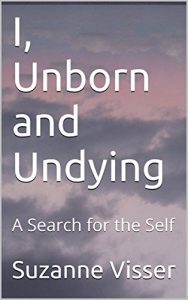It seems to be part of what gets called “the human condition” that our sense of self is somehow problematic. We don't feel quite right in ourselves – well, not often or for very long. There's something deeply unsatisfying about the whole set-up. No matter how much stuff we acquire, how many amazing experiences we have, how rewarding our work life is or how much recognition and love we receive from others, there's a gnawing sense of lack and unworthiness, and that's just for those of us lucky enough not to have our lives made hell by full blown mental illness, physical disease or material poverty. Buddhists call this uncomfortable background state “dukkha”: suffering, or more accurately, unsatisfactoriness. Christians explain it as a product of our “original sin”, of our fallen nature and distance from their god. Many mythologies depict our exclusion by some dark force from a heavenly realm of peace, joy and fulfillment. We feel deeply that we're missing out on something better than we're getting or getting something we'd rather miss out on. Even when we do get what we want, the celebration is fleeting and it's often a long time between drinks.
Consumer culture relies on this feeling of lack, promising to mitigate it or at least distract us from it with ever more enticing possessions and experiences. The religio-spiritual industry purports to be able to cure it, if not now, or even soon, then in a few lifetimes or in the paradisaical “next life”, and in the meantime provides us with that smug narcotic certainty of righteousness – the spiritual ego.
This book describes the discovery by the author of a real way out of this fix that is no escape. It doesn’t require accepting any beliefs on bad evidence but does ask us to re-visit the ground of our experience in a very radical and direct way. While spoken of, or sometimes only hinted at in many spiritual traditions, this return to primordial innocence requires us simply to “come to” right where we are as who we really are. If you've explored the world of non-duality teachings you'll have come across advice like this before, but may have found it confusing or impossible to follow. Join the club. Better than merely providing verbal advice, here Suzanne shares some very powerful tools – exercises and experiments to help trigger a shift in perception which can bring home to you the reality of what she writes, or perhaps I should say bring you Home to It.
Following a full and amazingly interesting life of seeking, Suzanne's relatively recent discovery of the work and approach of English philosopher Douglas Harding has proved to be a turning point her life as it has in mine.
Perhaps it will be for you too.
Sam Blight, 2016
Consumer culture relies on this feeling of lack, promising to mitigate it or at least distract us from it with ever more enticing possessions and experiences. The religio-spiritual industry purports to be able to cure it, if not now, or even soon, then in a few lifetimes or in the paradisaical “next life”, and in the meantime provides us with that smug narcotic certainty of righteousness – the spiritual ego.
This book describes the discovery by the author of a real way out of this fix that is no escape. It doesn’t require accepting any beliefs on bad evidence but does ask us to re-visit the ground of our experience in a very radical and direct way. While spoken of, or sometimes only hinted at in many spiritual traditions, this return to primordial innocence requires us simply to “come to” right where we are as who we really are. If you've explored the world of non-duality teachings you'll have come across advice like this before, but may have found it confusing or impossible to follow. Join the club. Better than merely providing verbal advice, here Suzanne shares some very powerful tools – exercises and experiments to help trigger a shift in perception which can bring home to you the reality of what she writes, or perhaps I should say bring you Home to It.
Following a full and amazingly interesting life of seeking, Suzanne's relatively recent discovery of the work and approach of English philosopher Douglas Harding has proved to be a turning point her life as it has in mine.
Perhaps it will be for you too.
Sam Blight, 2016






